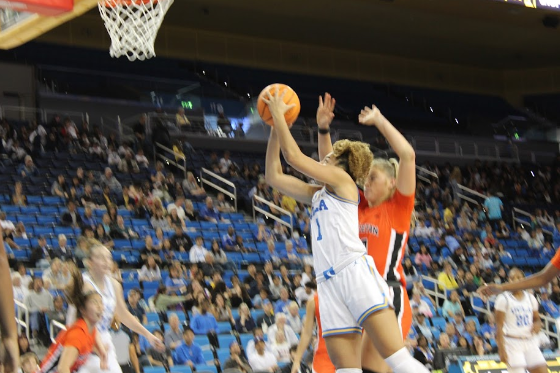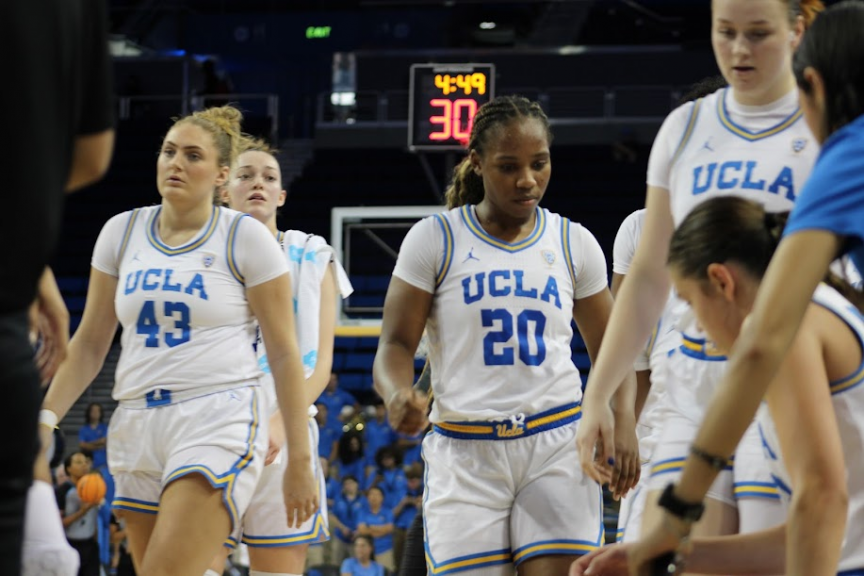Written by & Photos by: Krystal Tome
Afrikan women’s representation in sports media is deeply affected by race and gender disparities. As a continuation of “Bridging the Gap: Disparities between Women’s and Men’s Basketball,” I will explore these issues in a different perspective, taking into account recent events and related discourse.
In 2022, the NCAA Women’s Basketball tournament obtained March Madness branding. This comes after 83 years of the men’s tournament using this coinage and 40 years since the start of the women’s tournament.
Since 2020, when the NCAA did not provide the same resources as the men’s teams when it comes to chartered flights and exercise equipment for the Women’s National In-Tournament (WNIT), the NCAA has made improvements. In 2023, the NCAA bridged some of these gaps for the March Madness tournament and plan to do this for the WNIT as well. Although some amendments are being made, there is still a lot of work to do as an industry.
The fact that basketball is predominantly played by Afrikan athletes adds another layer to the issue of gender disparity.

On April 2nd, 2023, the LSU-Iowa game – the Women’s March Madness final – brought in a peak of 12.3 million viewers, a record-breaking number for viewership of a women’s basketball game. Mind you, this peak is below the viewership for every NCAA men’s championship game since 2013, according to Statista. After the game, there was much discourse online about Angel Reese, an Afrikan woman on LSU’s team, who performed a trash-talking gesture towards Caitlin Clark, a White woman on Iowa’s team, in the same manner Caitlin had been doing in past games.
UCLA graduate student and basketball player Camryn Brown shared her sentiments about this event in a recent interview with Nommo Newsmagazine Staff Writer Krystal Tome. “Women are viewed differently than men are when playing sports.” Due to this social climate, “apparently women aren’t allowed to show emotion or be excited about their sport and express like men are allowed to.” When Caitlin Clark had been doing similar taunting in previous games, she was not receiving as much backlash like how Reese had to face. This double standard highlights the racist undertones that live within basketball culture.
With the WNBA finals bringing together the Las Vegas Aces and the New York Liberty, it is important to note how these teams and players are depicted by the media. The WNBA and ESPN “have their token white girls… Sabrina Ionescu and Breanna Stewart.” Both of these women are players on the New York Liberty and have been pushed by the WNBA and ESPN into the media with video game cover photos and overall media representation (as Stewart won the 2023 MVP award). Camryn adds, “I don’t know if it’s to make the WNBA more digestible, I don’t know for what purpose.” With so many excelling Afrikan women in the WNBA, why don’t they get the same platform?

“Caitlin was having a huge tournament at that rate, so I think a lot of the people were tuned in to support her,” Brown added. With this, one can understand that Clark had an audience of her own, so when she was losing and getting trash-talked, there was poor audience reception. In addition to this, the Iowa women’s basketball team gained lots of support which may have led to a larger percentage of viewers in support of Iowa’s team–a team composed of mostly White players in a predominantly white institution. Brown’s theory is further backed by the attendance at the Iowa women’s basketball game played this 2023-2024 season in the Kinnick Stadium against DePaul, with an audience of 55,646 attendees.
Fortunately, and well deserved, the WNBA continues gaining more viewership and attendance for games. This could be a result of the success of the women’s NCAA tournament and the excitement transferring over to the WNBA season. Unfortunately, there are still systems in place pulling strings within the WNBA, causing racial tension.
Gold medalist and back-to-back champion A’ja Wilson won the Most Valuable Player award (MVP) in 2022, averaging 19.5 points, 9.4 rebounds, and 1.9 blocks per game in 2022. She beat her own stats this year in 2023, averaging 22.8 points, 9.5 rebounds, and 2.2 blocks per game. Yet in spite of her impressive performance, she did not receive the MVP award again.
“I don’t understand how your MVP of last year can outperform herself and not get MVP of this year.” As a defensive player herself, Brown relates to players like A’ja Wilson and understands how important this part of the game is and how underappreciated compared to playing offense.
This is a call to action for more support for women in sports, especially Afrikan women athletes. The time and energy we put into hyping up the NBA should also extend to the WNBA. There is power in numbers. More viewership and ticket sales lead to an economic push to expand the league to new cities, while online support for WNBA games creates a social push, resulting in a larger audience. As we push for positive representation for Afrikan women in sports media, these efforts will accelerate. Telling these stories and spreading news of the accomplishments Afrikan women athletes have can expand people’s worldviews and make a difference in the current media landscape. Although these tasks may seem small to some, the collective effort will have a major impact, improve the presence of Afrikan women in professional sports, and aid the liberation of our peoples.

More specifically, representing Afrikan women in sports, as well as other industries, is just one of many ways in which we can deconstruct the common trope of the monolithic Afrikan woman. Diversifying the lens through which we are observed in media allows us to exist more freely. Although there are limitations to this due to established media companies that value financial gain over social welfare, changing a small aspect of a multifaceted issue pervading the media industry can make all the difference.
As students at UCLA, we should support the women’s basketball team as well as the individual women on the team by going to the games. Giving them and the women’s game positive energy can help with these disparities.

